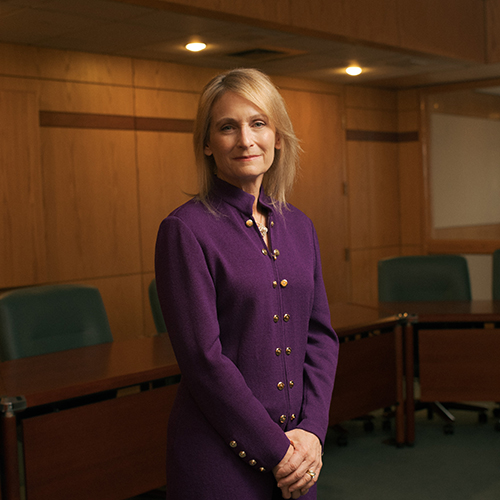
April 21, 2021
When the guilty verdicts of Derek Chauvin were read yesterday, cheers erupted outside the courtroom, with people shouting, crying, and saying that they could finally breathe, if just for a moment.
And it really is just a moment. I understand the significance of this trial and ongoing trauma created by the replaying of George Floyd’s murder. When I heard the verdict in the Chauvin trial was about to be announced, I immediately grew nauseous. Although the power of the video may seem to have suggested an obvious conviction of Chauvin, I knew better. Videos seen in the context of a courtroom narrative are often interpreted very differently there than when they are viewed in news reports or in social media, no matter how heinous the images are or clear cut the crime seems to be.
For all its significance, the verdict is a punctuation mark in a longer struggle for racial justice. The video of George Floyd’s death prompted civil unrest over the past year not only because it was a shocking and traumatizing incident, but because of the systemic racism that it brought to the foreground of broad public consciousness. Words of empathy and support were no longer enough; what actions would we take based on our understanding? Would we take to the streets in protest? Commit to patronizing Black businesses? Seek to employ and mentor aspiring Black leaders? Create greater access to education? Work toward prison and law enforcement reform? Engage in deep self-reflection, learning, and excavation of the past so that we might build a better, more inclusive, and just future?
The work of dismantling racism is for all of us, irrespective of the verdict. Our Chief Diversity Officer, Dr. Tamara Stevenson, wrote yesterday about additional, recent, officer-involved killings of Black men, and noted that “these recent tragedies exacerbate the historical traumas that communities of color continue to experience in their interactions with law enforcement and the criminal justice system in the U.S.” Part of our work moving forward involves recognizing the physical toll of racism and supporting those affected by it. As an institution of higher education, we have a particular obligation to learn about our own biases and contributions to systemic racism, both as individuals and as a collective.
As part of the college’s overarching efforts toward an anti-racist organizational strategy, a team of students, staff, and faculty (Westminster team members Jenessa Jimou, Kathryn Julian, Kari Lindsay, and Tamara Stevenson with Mark Miller Subaru as our community partner) will participate in the Association of American Colleges and Universities 2021 Institute on Truth, Racial Healing & Transformation (TRHT). This work and the presentation of Racism at Alma Mater virtual exhibit by professors Alicia Cunningham-Bryant, Jeff Nichols, Spencer Potter, and Eileen Chanza Torres at the 2021 National Council on Public History conference are exemplary of our recent efforts.
Atrocious acts of violence based on group membership happen so frequently that we risk becoming numb to them and relying on regular condemnation by senior leaders to feel like we have addressed deep social problems. My focus will always be on the immediate and direct impact of national events on our students, staff, and faculty, and on the role of higher education in addressing the complex issues of our times. We all, together, must do more, and provide both the tools and support necessary for those who continue to bear the burdens of racism, and the learning opportunities and measures of accountability for those of us who contribute, often unknowingly, to the conditions that enable racism to flourish.
Bethami A. Dobkin, PhD
Westminster College President
